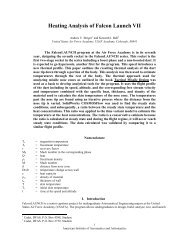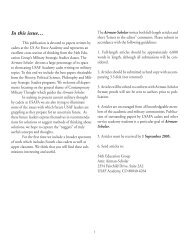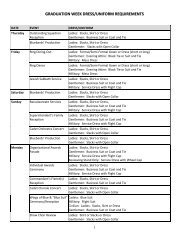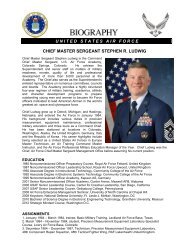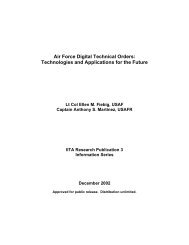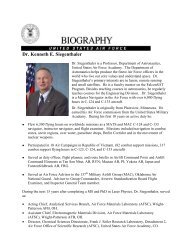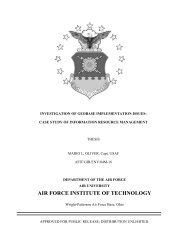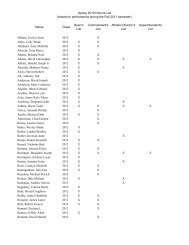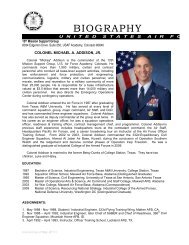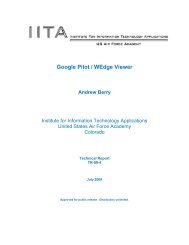the rollback of south africa's biological warfare program
the rollback of south africa's biological warfare program
the rollback of south africa's biological warfare program
You also want an ePaper? Increase the reach of your titles
YUMPU automatically turns print PDFs into web optimized ePapers that Google loves.
that <strong>the</strong> deaths were due to SADF testing <strong>of</strong> chemical gases. O<strong>the</strong>r sources<br />
close to SADF claimed that <strong>the</strong> deaths were due to an “unexpected shift in <strong>the</strong><br />
wind” that blew chemical gases onto <strong>the</strong> UNITA troops.<br />
The question <strong>of</strong> who used what type <strong>of</strong> agents in Rhodesia, Namibia,<br />
Angola, and Mozambique raises important issues. If South African forces were<br />
involved in <strong>of</strong>fensive CBW in sou<strong>the</strong>rn Africa in <strong>the</strong> 1970s, it would have<br />
violated international commitments. These included <strong>the</strong> 1925 Geneva<br />
Conventions, which South Africa acceded to in 1963, and <strong>the</strong> Convention on<br />
<strong>the</strong> Prohibition <strong>of</strong> <strong>the</strong> Development, Production and Stockpiling <strong>of</strong><br />
Bacteriological and Toxin Weapons and on <strong>the</strong>ir Destruction (BWC), which<br />
South Africa signed in 1972 and ratified in 1975. Also, it means that <strong>the</strong><br />
regime might have already developed chemical and <strong>biological</strong> weapons and<br />
used <strong>the</strong>m. Claims that Project Coast was developed in <strong>the</strong> 1980s as a<br />
“defensive” <strong>program</strong>, in reaction to <strong>the</strong> “Soviet and Cuban threat” in Angola<br />
and Mozambique would lose credibility. South Africa <strong>of</strong> <strong>the</strong> 1970s would be<br />
viewed even more as an “outlaw state,” willing to break conventions and<br />
subject black victims to inhuman deaths. It would also appear that <strong>the</strong> regime<br />
was prepared to continually violate commitments to international law, if threats<br />
to its survival continued to grow.<br />
Perceptions <strong>of</strong> a Soviet and Cuban “Threat” and Moves towards a<br />
Sophisticated CBW Program<br />
The collapse <strong>of</strong> Portuguese colonialism led, from 1974 to 1976, to <strong>the</strong> takeover<br />
<strong>of</strong> Angola and Mozambique by revolutionary communist regimes, backed by<br />
<strong>the</strong> Soviet Union and Cuba. Suddenly, South African leaders found <strong>the</strong>mselves<br />
surrounded by communist forces, which were viewed as implacable and<br />
unscrupulous enemies. South African defense experts knew that <strong>the</strong> Soviet<br />
Union possessed nuclear, <strong>biological</strong> and chemical (NBC) weapons. In regard<br />
to <strong>the</strong> Soviet BW <strong>program</strong>, indications <strong>of</strong> its scale and sophistication had been<br />
gained during and after negotiations surrounding <strong>the</strong> 1972 Biological Weapons<br />
12




